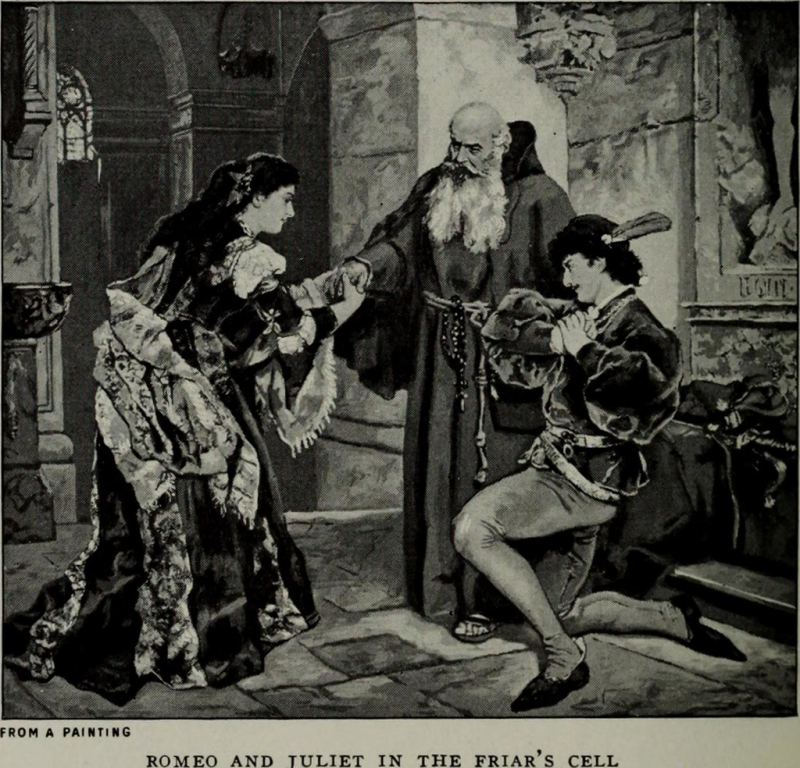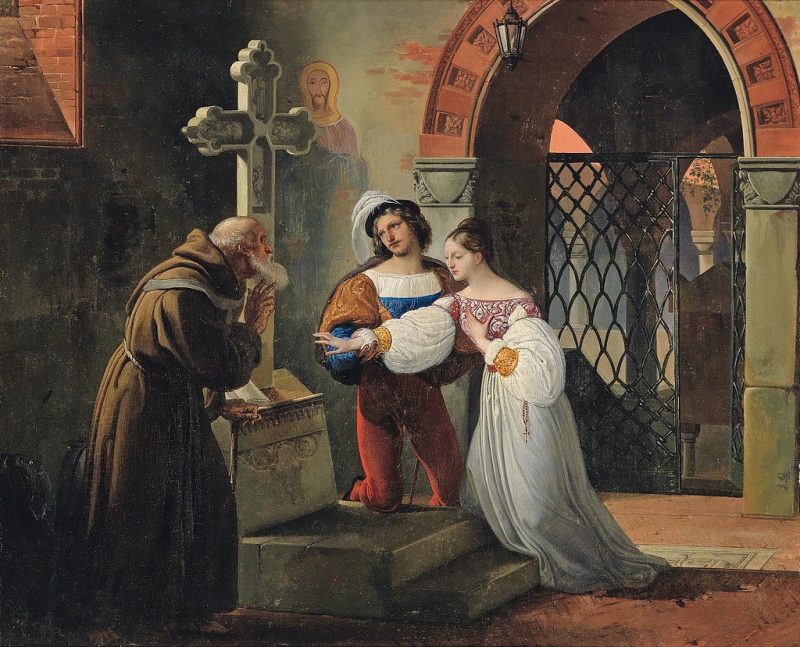Why does Friar Lawrence decide to marry Romeo and Juliet?
Friar Lawrence agrees to marry Romeo and Juliet for a combination of reasons. One primary motivation is his hope that the union between the two young lovers might help to reconcile the longstanding feud between the Montagues and the Capulets. Friar Lawrence believes that the marriage could be a catalyst for peace and harmony between the two warring families. “For this alliance may so happy prove / To turn your households’ rancor to pure love,” he says (2.3.91–92).
When Juliet arrives, Friar Lawrence wants to marry them as soon as possible since their love makes him afraid they will make love if left alone: "[Y]ou shall not stay alone / Till holy church incorporate two in one" (2.6.36-37).
Additionally, Friar Lawrence is motivated by his genuine affection for Romeo. He hopes that marrying Romeo to Juliet will redirect Romeo's infatuation away from Rosaline, which has been a source of concern for the Friar. He sees the potential for Romeo's feelings to shift towards a more stable and reciprocal love with Juliet.
Friar Lawrence, however, underestimates the complexities and consequences of this decision, and the secret marriage ultimately sets in motion a series of tragic events leading to the untimely demise of the young lovers.

















